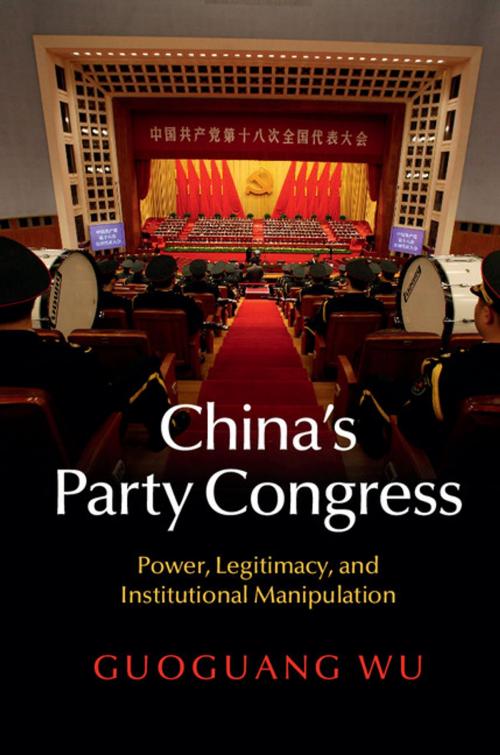China's Party Congress
Power, Legitimacy, and Institutional Manipulation
Nonfiction, Social & Cultural Studies, Political Science, International, Foreign Legal Systems| Author: | Guoguang Wu | ISBN: | 9781316393826 |
| Publisher: | Cambridge University Press | Publication: | September 18, 2015 |
| Imprint: | Cambridge University Press | Language: | English |
| Author: | Guoguang Wu |
| ISBN: | 9781316393826 |
| Publisher: | Cambridge University Press |
| Publication: | September 18, 2015 |
| Imprint: | Cambridge University Press |
| Language: | English |
Nominally the highest decision-making body in the Chinese Communist Party, the Party Congress is responsible for determining party policy and the selection of China's leaders. Guoguang Wu provides the first analysis of how the Party Congress operates to elect Party leadership and decide Party policy, and explores why such a formal performance of congress meetings, delegate discussions, and non-democratic elections is significant for authoritarian politics more broadly. Taking institutional inconsistency as the central research question, this study presents a new theory of 'mutual contextualization' to reveal how informal politics and formal institutions interact with each other. Wu argues that despite the prevalence of informal politics behind the scenes, authoritarian politics seeks legitimization through a combination of political manipulation and the ritual mobilization of formal institutions. This ambitious book is essential reading for all those interested in understanding contemporary China, and an innovative theoretical contribution to the study of comparative politics.
Nominally the highest decision-making body in the Chinese Communist Party, the Party Congress is responsible for determining party policy and the selection of China's leaders. Guoguang Wu provides the first analysis of how the Party Congress operates to elect Party leadership and decide Party policy, and explores why such a formal performance of congress meetings, delegate discussions, and non-democratic elections is significant for authoritarian politics more broadly. Taking institutional inconsistency as the central research question, this study presents a new theory of 'mutual contextualization' to reveal how informal politics and formal institutions interact with each other. Wu argues that despite the prevalence of informal politics behind the scenes, authoritarian politics seeks legitimization through a combination of political manipulation and the ritual mobilization of formal institutions. This ambitious book is essential reading for all those interested in understanding contemporary China, and an innovative theoretical contribution to the study of comparative politics.















